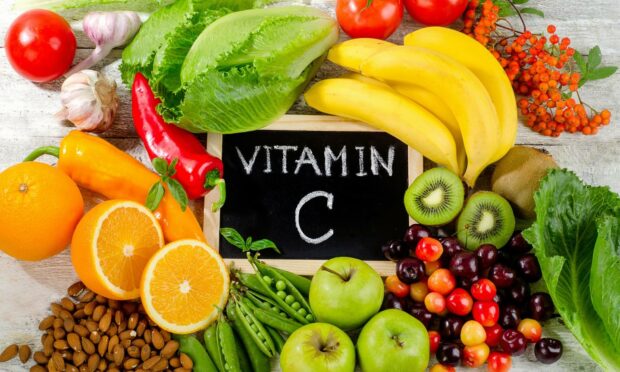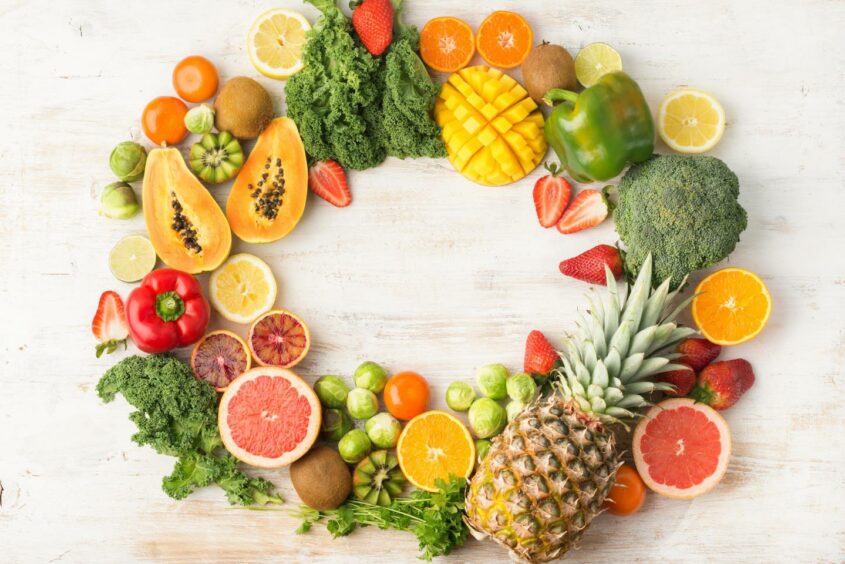Vitamin C is a water-soluble vitamin, meaning it dissolves in water. Because the body can’t produce it and can only store a small amount, we need to source vitamin C on a daily basis.
This isn’t too hard to do as there are plenty of food sources of vitamin C and lots of vitamin C supplements to choose from. But why do we need it in the first place?
Vitamin C is important for many reasons but especially so for immune health, collagen synthesis and wound healing. It’s also an important antioxidant.
Vitamin C deficiency is a well-known cause of scurvy, which is normally associated with sailors being at sea for a long time. Scurvy is relatively rare in this day and age, but a poor diet, smoking, alcoholism and anorexia can all lead to low levels of vitamin C and related symptoms such as fatigue, dry or bumpy skin, slow-to-heal wounds, bleeding gums, painful joints, hair loss and of course, poor immunity.
Immune system boost
One of the main reasons people take vitamin C supplements is to boost the immune system. Vitamin C is well documented for aiding in the prevention of colds and other infections and one way it does this is by encouraging the production of white blood cells that help protect the body against infection.
Not so well-known is the role it plays in helping the body to absorb iron, which in turn is needed to transport oxygen around the body, keeping cells healthy and fighting fit.
Vitamin C is also important for the production of collagen, the main component of connective tissue, which is needed for healthy joints and mobility. Collagen is also important for healthy skin, which contains large amounts of vitamin C, especially in the epidermis, or outer layer of skin. Vitamin C also helps to keep skin healthy by protecting it from oxidative damage.
And since vitamin C is needed for collagen production, low levels of vitamin C can slow the rate of tissue formation, which can cause wounds to heal more slowly.
Research has shown that people with chronic, non-healing leg ulcers are significantly more likely to be deficient in vitamin C. Slow wound healing is one of the more advanced signs of vitamin C deficiency and typically not seen unless you’ve been deficient for some time.
Sources of vitamin C
The good news is there are lots of dietary sources of vitamin C. From brassicas to berries there are plenty of foods that are naturally rich in vitamin C.
Strawberries especially are an excellent source of vitamin C, pipping the average orange to the post when it comes to total vitamin C content.
Other good food sources are acerola cherries, blackcurrants, kiwis, red peppers, Brussels sprouts, broccoli and kale. All of these foods contain good amounts of natural vitamin C.
Supplements
But what about supplements? There are of course plenty of vitamin C supplements to choose from, although do try to source your vitamin C from food first – your body recognises vitamins in their natural food state best.
Many vitamin C products are made synthetically and the body has a hard time recognising and absorbing synthetic vitamin C.
If you are looking to top up, a natural vitamin C supplement can help. A.Vogel’s Nature-C provides naturally occurring vitamin C sourced from real fruits, including acerola, gooseberries and blackcurrants, in a chewable tablet form. It’s perfect for gently supporting your immune system and great if you’re not keen on swallowing tablets.
An equally natural Nature-C for Kids is also available for children as young as four – just in case the curly kale isn’t hitting the spot.
For further information on staying well this winter, ask in store at Grampian Health Store, 34 Market Street, Aberdeen, or call 01224 590886. If you’re unable to get out and about, home delivery is also available.




